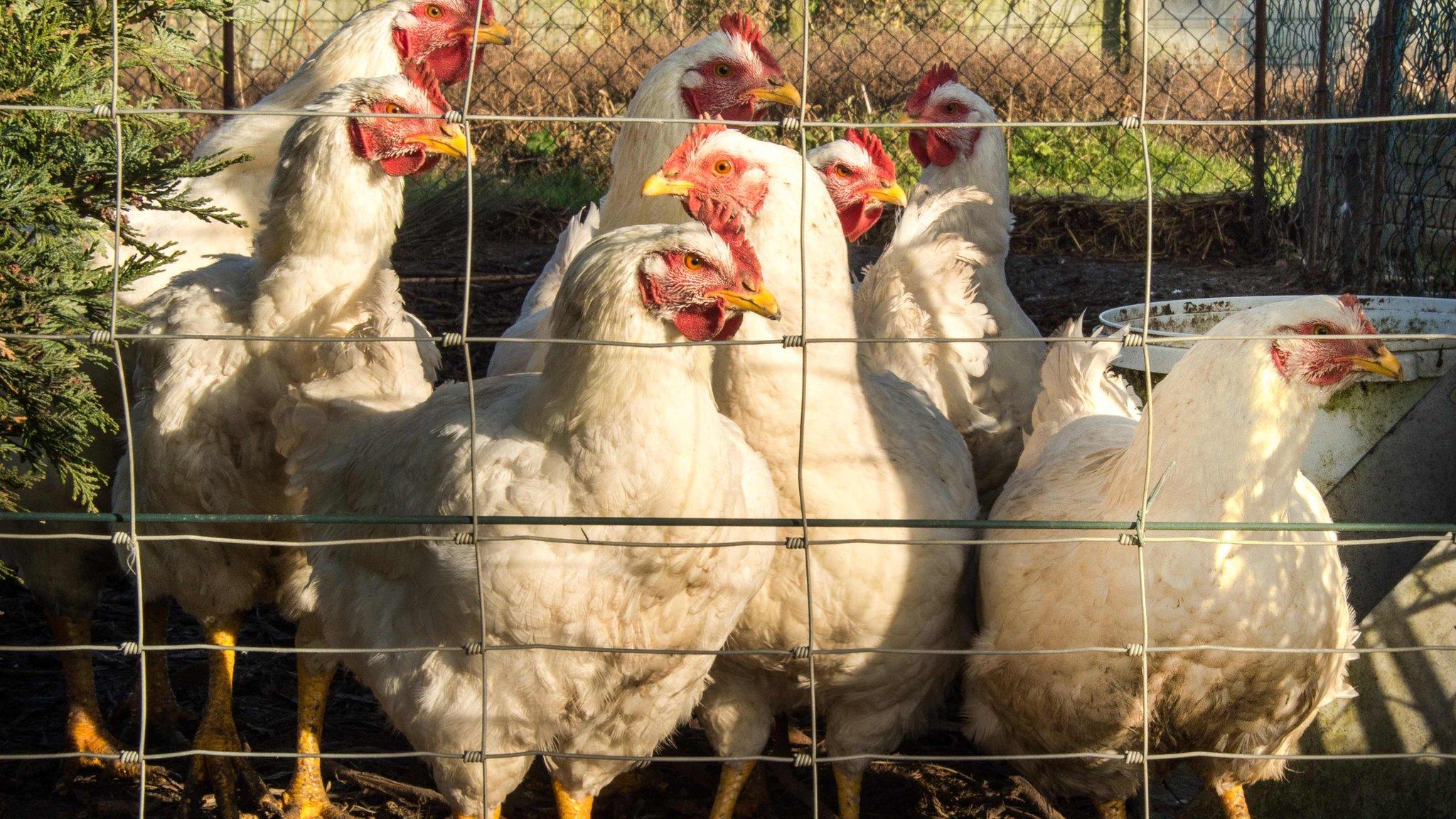Scottish avian influenza prevention zone lifted
- Published
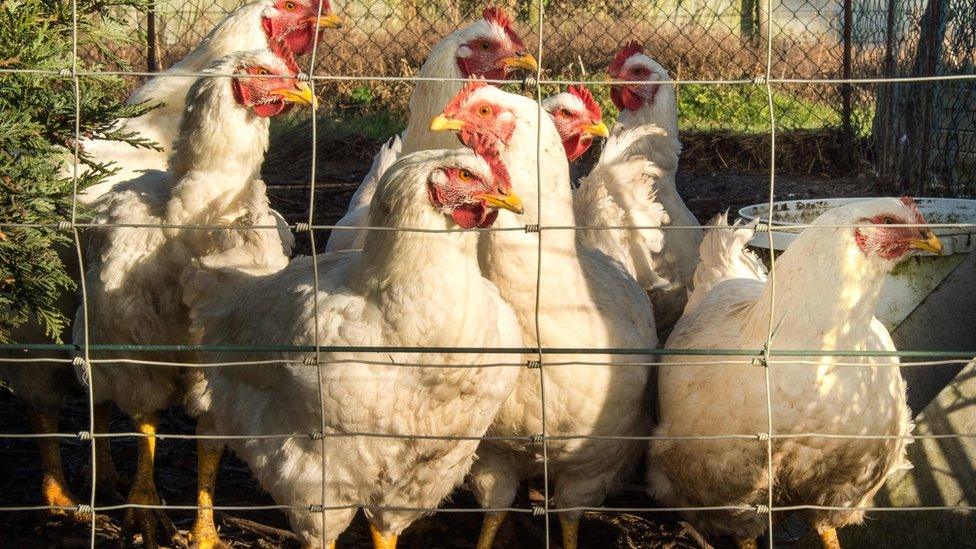
All species of poultry were subject to the restrictions
An avian influenza prevention zone which was declared across Scotland at the start of December has been lifted.
The zone required bird keepers to put in place enhanced bio-security measures before letting their birds outside, in order to reduce the risk of disease.
It was set up after highly pathogenic avian influenza (HPAI) H5N8 was confirmed in Lincolnshire.
The ban on shows and gatherings of poultry, waterfowl and game birds will remain in force until 15 May.
On that date, a new general licence will come into force.
Avian influenza is an infectious virus carried by wild birds from the continent, with a single case discovered in Scotland.
Earlier this month, free range egg producers in Scotland began the process of allowing their hens back outside.
The birds had been shut indoors since high-risk zones were designated in parts of England in response to the recent bird flu outbreak.
Under the Scottish government's rules, flocks were permitted to be kept outside as long as heightened bio-security measures were in place.
But north and south of the border, the industry decided to house the birds to keep all producers on a level playing field.
It resulted in free range egg-boxes being re-labelled to say the contents were produced from birds kept in barns.
'Welcome news'
Rural Economy secretary Fergus Ewing said: "This will be welcome news for many keepers who have opted to keep their birds indoors to protect them from a seasonally increased risk from highly pathogenic avian influenza H5N8.
"This decision has been made following the recent veterinary risk assessment concluding that the risk of avian influenza incursion to poultry and captive birds in Scotland had decreased to low.
"This has been a testing time for all of us, and I would like to thank all bird keepers in Scotland for their co-operation and vigilance.
"Your positive and committed response has helped us reach this point."
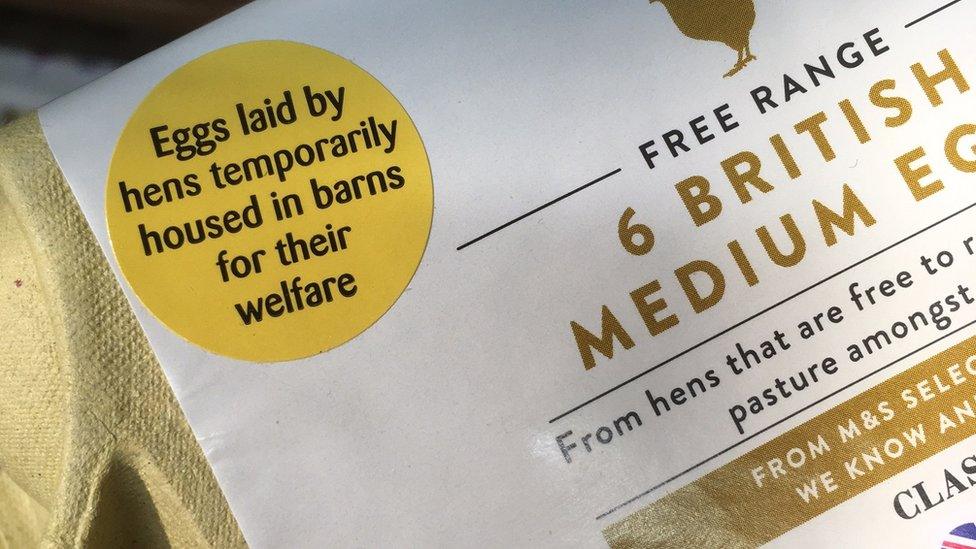
Boxes of free range eggs were relabelled because of the restrictions
Scotland's chief veterinary officer, Sheila Voas, said: "It is a relief to see that the risk of HPAI H5N8 in Scotland has reduced, but this does not mean we should be complacent; the risk of avian influenza has not disappeared.
"It is essential that bird keepers maintain effective bio-security year-round, not just when a prevention zone is in place.
"All bird keepers should consider maintaining excellent bio-security practices like washing boots and equipment with approved disinfectant, implementing effective rodent control, minimizing unnecessary visitors and reducing their flock's contact with wild birds."
'Testing time'
NFU Scotland welcomed the lifting of the prevention zone.
Poultry policy and animal health and welfare policy manager Penny Middleton said: "This has been a testing time for the Scottish poultry industry and their response and cooperation in the face of such heightened risk is to be applauded.
"Obviously whilst the risk has reduced it has not disappeared completely and keepers need to stay focused on bio-security, maintaining measures to minimise contact between the flock and wild birds and to minimise any spread of potential infection.
"The level of threat this winter has been unprecedented but could be the start of a recurring pattern.
"There is work needed to be done this summer to assess how we handle such situations in the future and for keepers to consider carefully their contingency plans and resilience to face similar situations in the future."
- Published14 April 2017
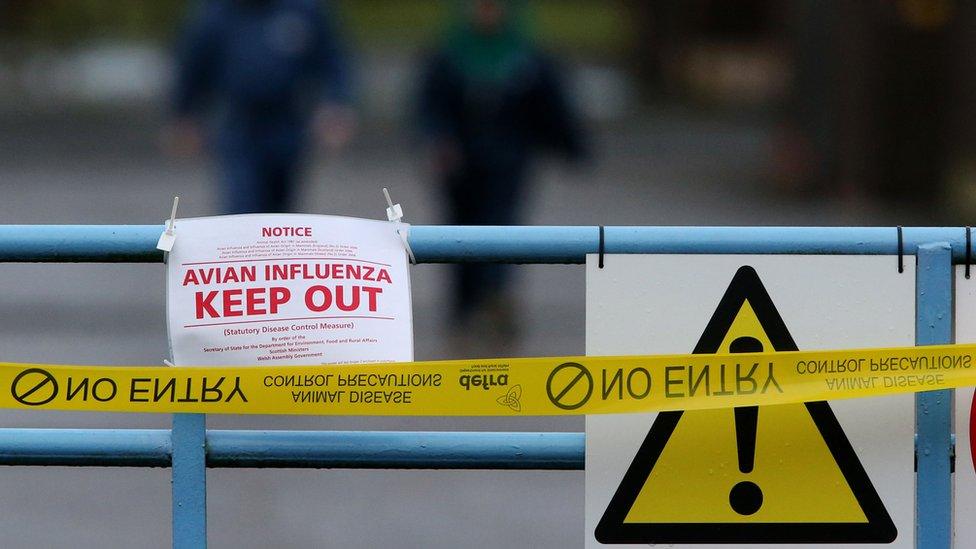
- Published16 December 2016

- Published7 December 2016
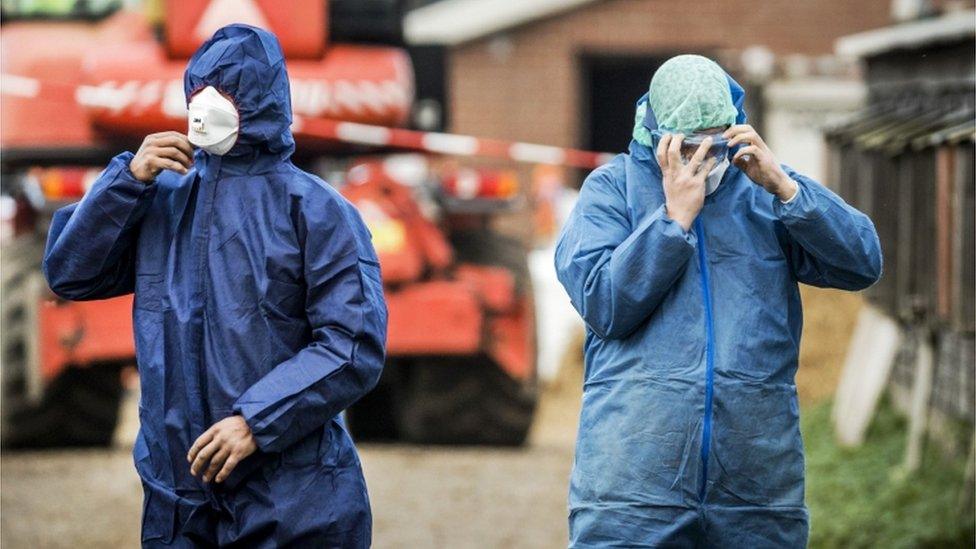
- Published7 December 2016
